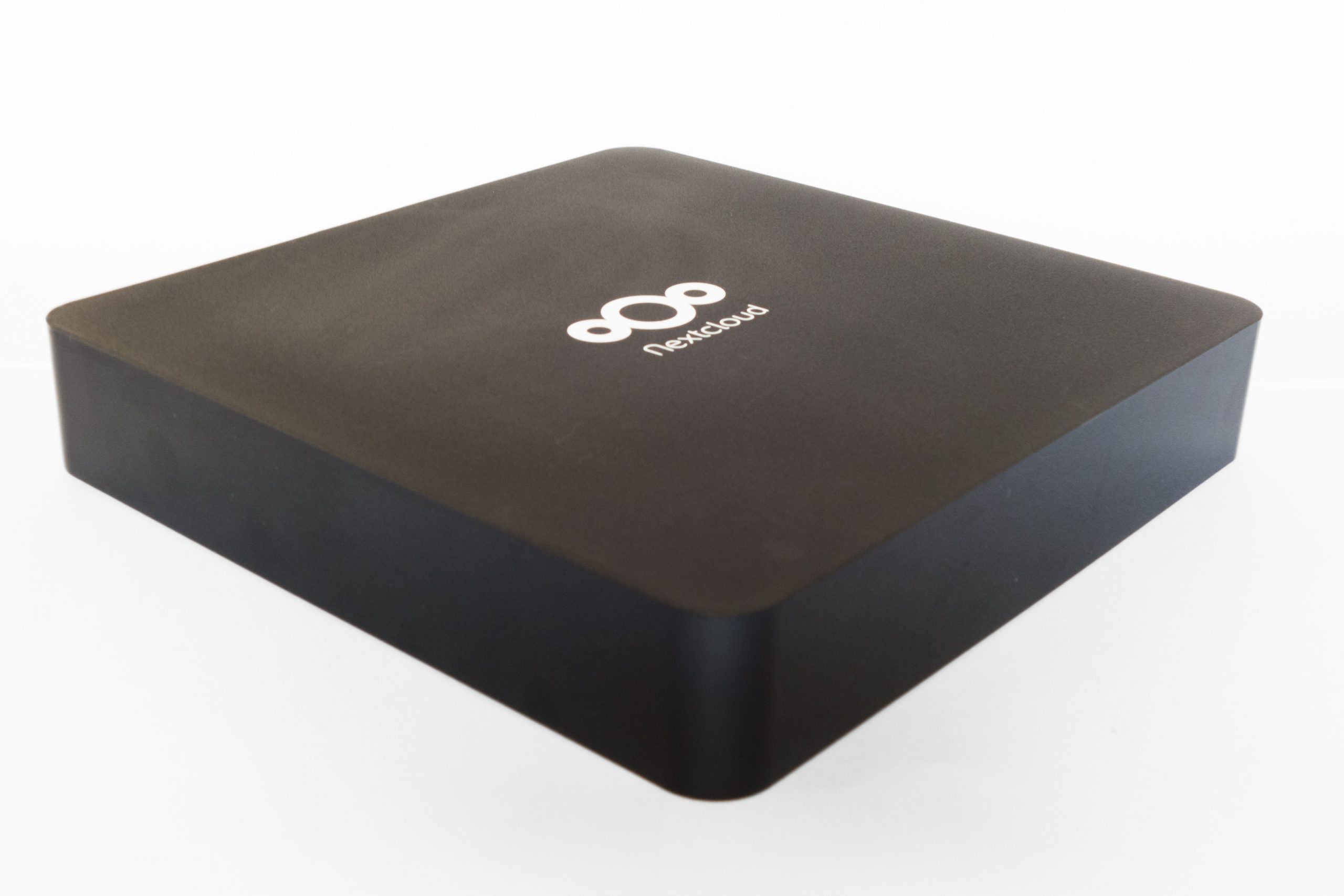
Canonical and Western Digital launch Ubuntu Linux 'Nextcloud Box' powered by Raspberry Pi
Cloud storage is amazingly convenient. Unfortunately, the best part of the cloud can also be the worst. You see, having your files stored on someone else's severs and accessing them over the internet opens you to focused hacking, and potentially, incompetence by the cloud storage company too. As a way to have the best of both worlds, some folks will set up net-connected local storage so they can manage their own 'cloud'.
Today, Canonical and Western Digital (WDLabs) unveil an Ubuntu Core Linux-based cloud storage and 'Internet of Things' device called 'Nextcloud Box'. The box leverages the open source Nextcloud service and can be powered by a Raspberry Pi 2, Raspberry Pi 3, or oDroid C2. Will it be easier to use and manage than closed source solutions?

Ubuntu 'Snap' now universal -- coming to Linux distros like Fedora, Arch, OpenSUSE, and more!
My biggest complaint about Linux based desktop operating systems is fragmentation. There are too many desktop environments, too many package managers, heck, too many distros! Not only can end-users be negatively impacted by too many choices, but more importantly, developers can be spread too thin. Ultimately, the Linux community ends up being unfocused and unable to move the desktop dial.
Today, something miraculous happens. Believe it or not, the Linux Community largely bands together to embrace Ubuntu's "Snap" packages. Yes, you are reading that correctly -- competing Linux-based operating systems like Fedora, Gentoo, Arch, and more, will utilize the now-universal "Snap," meaning Linux software can be made to install regardless of distro. This should be particularly brilliant for operating systems optimized for mobile and IoT.
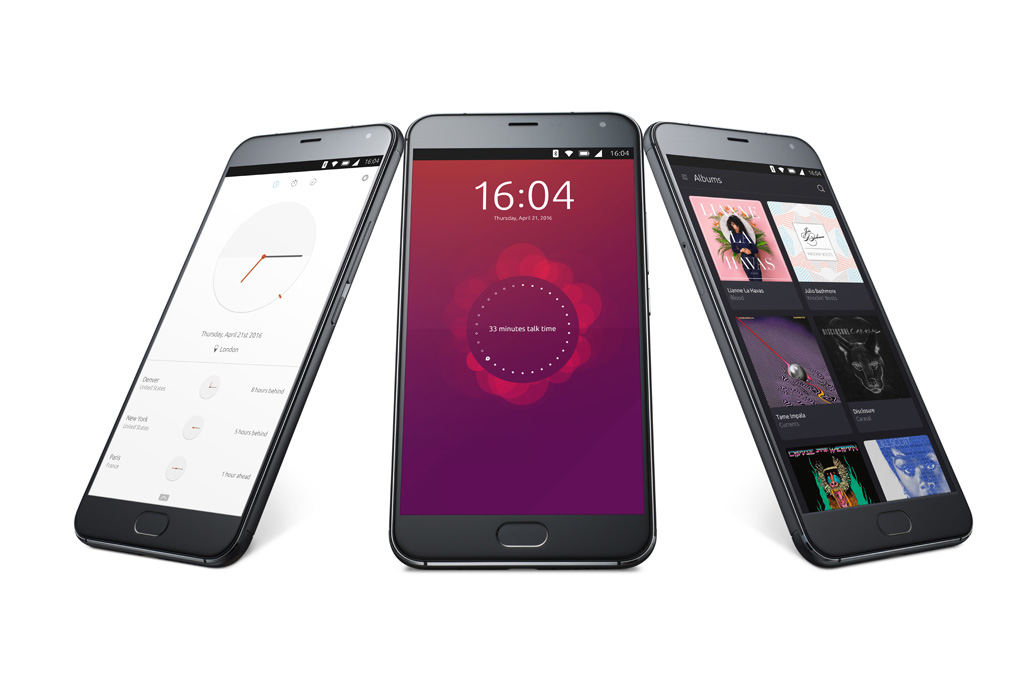
Meizu PRO 5 Ubuntu Edition smartphone finally available -- Linux fans, buy it now!
Android is a Linux-based operating system, true, but for many, it is sort of a bastardized use of the kernel. Understandably, Nexus devices aside, it can feel very un-Linux-like to have devices with locked bootloaders that cannot be easily updated. Some Linux fans have been clamoring for an alternative.
Ubuntu is that alternative. Canonical's operating system can scale well, from desktop to tablet to smartphone. Best of all, you can buy an unlocked device that requires no carrier approval for OS updates. Today, the most exciting phone to run the operating system -- Meizu Pro 5 Ubuntu Edition -- goes on sale.

Canonical releasing Ubuntu Linux 16.04 LTS 'Xenial Xerus' tomorrow -- will you download it?
Ubuntu is one of the best -- if not the best -- desktop Linux-based operating systems. Many people, including me, trust it for their computing needs every day. Best of all, Canonical releases special LTS versions every two years, offering a super-long five years of support.
Tomorrow, the latest such LTS version, 16.04, will see its official release. I've been running pre-release versions of this operating system for a while now, and it has been brilliantly stable. Tomorrow's release will be the best Ubuntu ever, featuring things like new snap packages, CephFS, and ZFS-on-Linux.

Microsoft and Canonical bring Ubuntu Linux binaries and Bash Shell to Windows 10
Well folks, today we witness history. For the longest time, Microsoft and the Linux community have been like Ford and Chevy, or Coke and Pepsi -- bitter rivals. Users have often chosen a side, and then hated the other. Of course, Windows has many more followers on the desktop -- Linux is largely insignificant in that regard. Mobile and servers are a different story, but I digress.
Today, pigs must be flying, as Microsoft does the unthinkable, and brings Ubuntu binaries and Bash Shell to Windows 10. Steve Ballmer would be rolling in his grave -- if he were dead, that is.

Canonical releases Ubuntu Linux 16.04 LTS 'Xenial Xerus' Final Beta
If you are a Linux desktop user, there is a good chance you have used Ubuntu at some point in your life. The distribution is one of the best, offering stability, many available packages, and an overall great user experience. Unfortunately, the last few releases have been rather ho-hum -- boring and evolutionary. Don't get me wrong, Canonical shouldn't fix what isn't broken (as Microsoft often does with Windows), but some users expect a bit more from operating system upgrades.
The upcoming 16.04 release looks to remedy this, finally delivering a meaty upgrade to Ubuntu fans. Two major changes are a much improved Unity with the ability to move the dock (woo-hoo!), and a refreshed software store. Today, Canonical releases the final beta, signaling that the true non-beta final version, due April 21, is right around the corner.
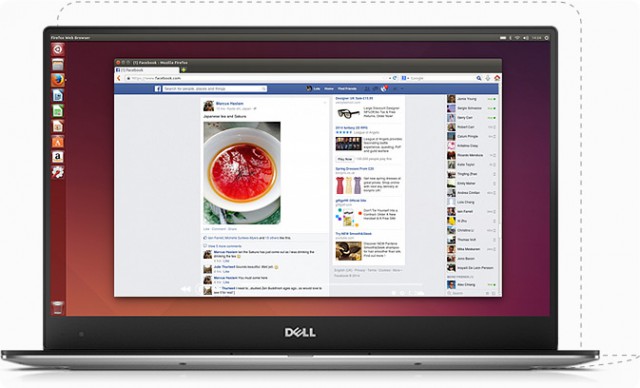
Dell releases new XPS 13 Developer Edition, launches Linux-based Precision laptops worldwide
On the laptop side, Dell may be best known for its Windows devices, but, as some of you may already know, it also offers some killer Linux-based alternatives for prosumers. It all started out nearly four years ago with Project Sputnik, which led to the release of the first-gen XPS 13 Developer Edition, a Ubuntu-flavored version of the popular ultrabook, in late-2012.
Fast forward to today and Project Sputnik is more than just a one device effort, as Dell has expanded the reach of the program to also include some of its professional-grade laptops. Now, the company steps it up a notch by introducing the Intel Skylake refresh of XPS 13 Developer Edition, and making the Ubuntu-toting Precision laptops available worldwide.
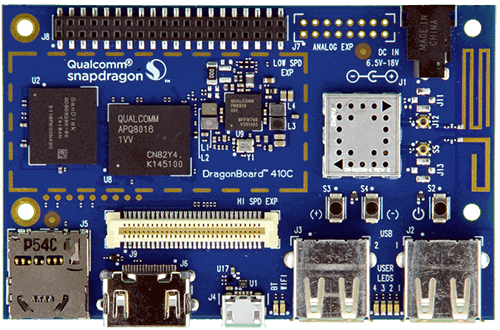
Canonical chooses Linux-friendly Dragonboard 410c as Ubuntu Core on ARM 64-bit reference
Linux is such a wonderful kernel for many reasons, but I find its adaptability to be the tops. You can get an operating system based on the kernel running on such a broad range of hardware -- something Microsoft can only dream about with its venerable Windows.
Even though Linux can run on damn-near anything, it is beneficial for developers to have a reference platform to use for creating. Of course, they can always expand from that jumping point. Today, Canonical announces that the Dragonboard 410c hardware will be the reference platform for Ubuntu Core on ARM 64-bit.
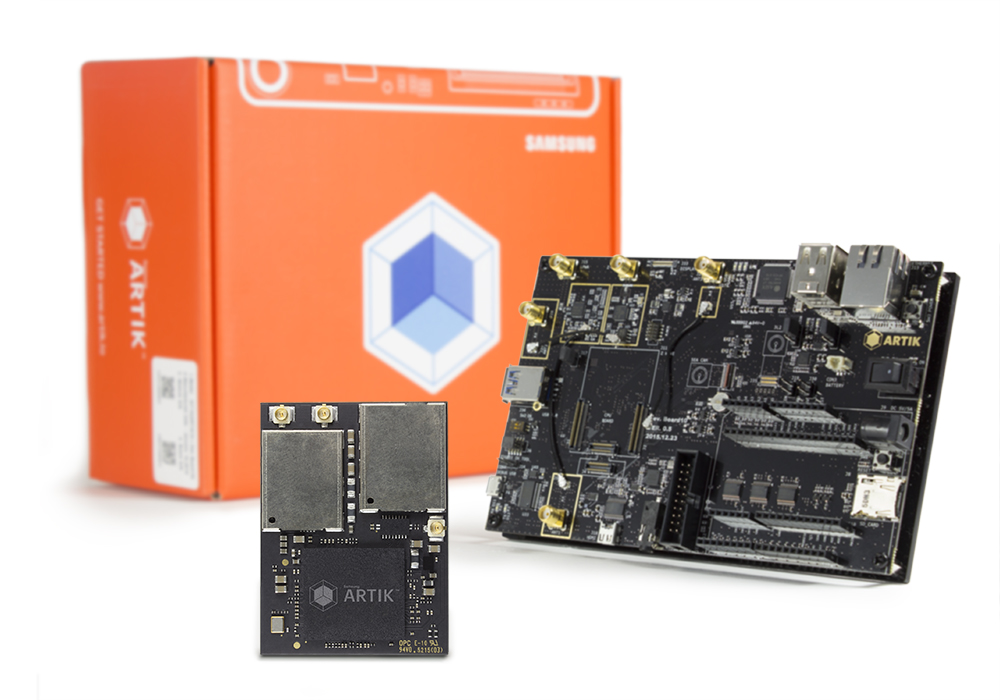
Canonical to release Snappy Ubuntu Core Linux image for Samsung ARTIK IoT platform
Ah, Linux. What can't the open source kernel do? For many projects, operating systems based on it have proven remarkably adaptable -- being made to work with countless hardware configurations. While Windows may remain king of the desktop -- for now -- Linux has its fingers in many pies for which Microsoft's offering is just too bloated. It remains to be seen if Windows 10 IoT will be embraced.
Today, Canonical announces that it will be releasing an Ubuntu Core image for Samsung's IoT-focused ARTIK platform (5 and 10 modules). What does this mean? Well, developers can now leverage one of the most popular Linux distributions on this hardware. This creates amazing potential for ARTIK.
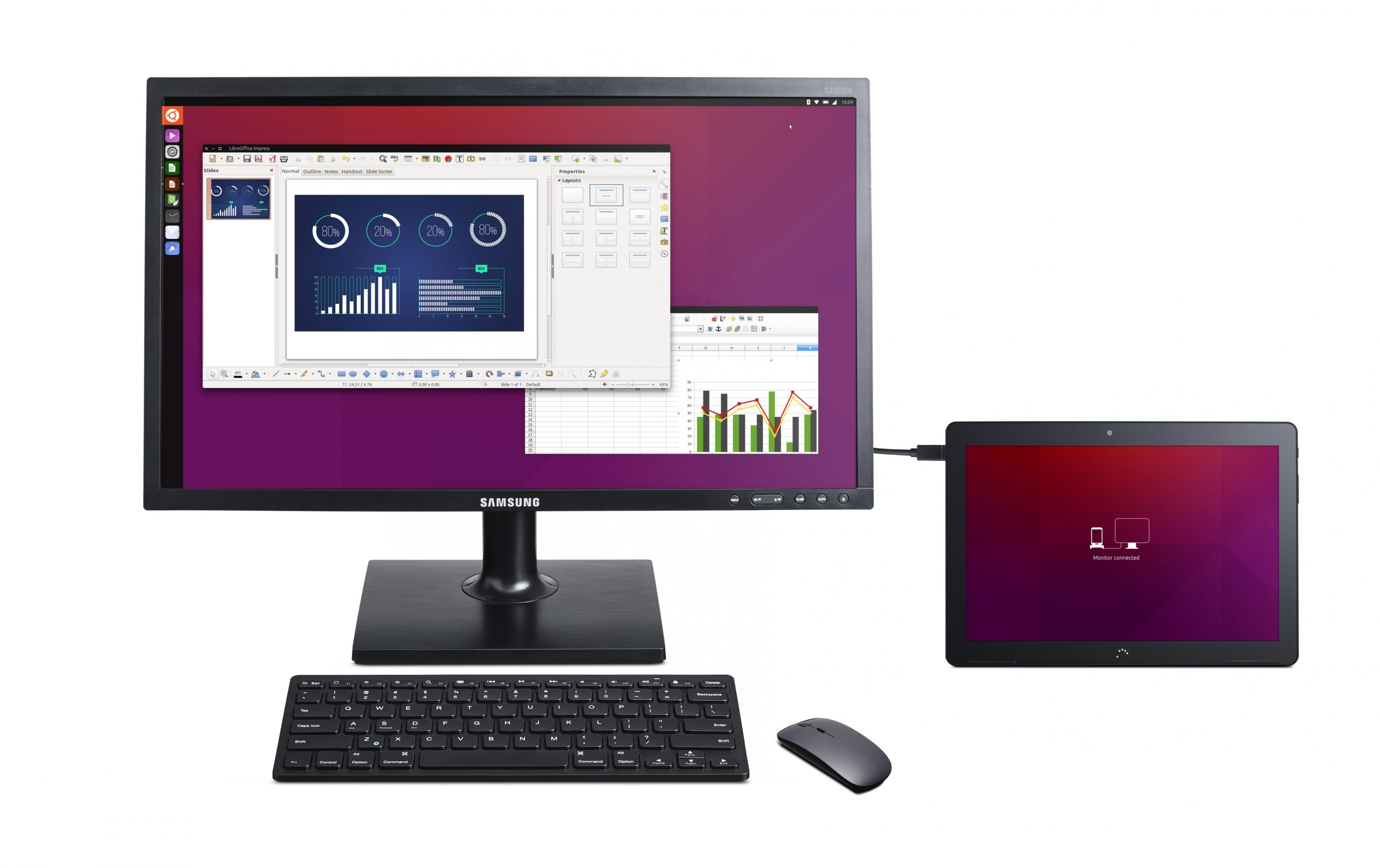
Canonical fulfills its Linux convergence vision with BQ Aquaris M10 Ubuntu Edition tablet
Convergence is all the rage in the technology industry nowadays and for good reason -- our handheld devices are insanely powerful. It makes sense to leverage a smartphone or tablet's processor for desktop computing. By connecting a monitor, mouse, and keyboard to the mobile device, it can serve as a full-fledged computer. Those with more hardcore computing needs, such as editing video, for example, may have to wait a while for more powerful handheld devices.
Microsoft has shown off its Continuum functionality, which turns a Windows 10 Mobile smartphone into a desktop, but because of shocking limitations, it really isn't ready for prime-time. Canonical has long been working on its own convergence plans with Ubuntu -- it is not copying Microsoft's. Quite frankly, it can be argued that the open source Linux kernel is a more adaptable base for such Swiss Army-like devices as Windows could be too bloated. Today, Canonical unveils the BQ Aquaris M10 Ubuntu Edition tablet which fulfills its Linux convergence vision. Not only can a user be productive with the tablet itself, but it can be connected to peripherals to create a full desktop experience.
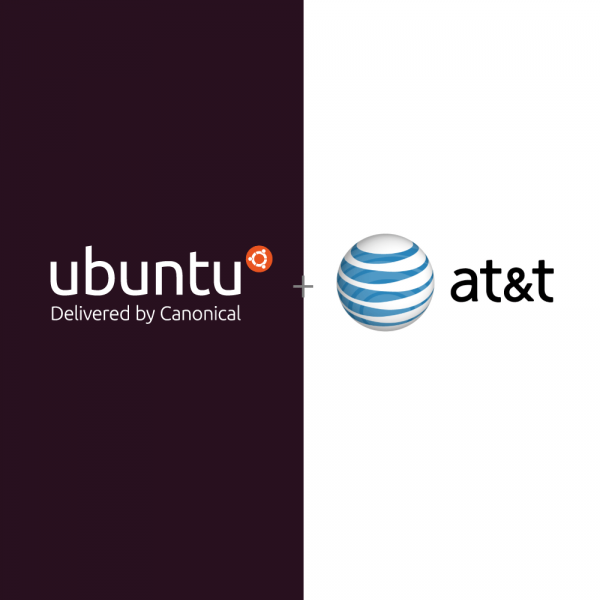
AT&T chooses Ubuntu Linux instead of Microsoft Windows
While Linux's share of the desktop pie is still virtually nonexistent, it owns two arguably more important markets -- servers and smartphones. As PC sales decline dramatically, Android phones are continually a runaway market share leader. In other words, fewer people are buying Windows computers -- and likely spending less time using them -- while everyone and their mother are glued to their phones. And those phones are most likely powered by the Linux kernel.
Speaking of smartphones, one of the largest cellular providers is the venerable AT&T. While it sells many Linux-powered Android devices, it is now embracing the open source kernel in a new way. You see, the company has partnered with Canonical to utilize Ubuntu for cloud, network, and enterprise applications. That's right, AT&T did not choose Microsoft's Windows when exploring options. Canonical will provide continued engineering support too.

Canonical goes on the attack, claims over a billion people use Ubuntu
At the end of last year, Michael Larabel of Phoronix wrote an article in which he pointed out that Ubuntu had failed to hit its stated aim of 200 million users by the end of 2015. This figure was a goal that Canonical founder Mark Shuttleworth laid out at the Ubuntu Developer Summit (UDS) in May 2011.
"We're just days away from closing out 2015 and it doesn't look like Ubuntu has come close to reaching that goal", Larabel wrote. Clearly his article riled those at Canonical, and the company has come out swinging with a blog post that details exactly how popular, and ubiquitous, Ubuntu is.

Ubuntu 15.10 is howling at the moon -- 'Wily Werewolf' is finally here
Halloween is growing nearer every day. Soon, the streets will be full of children dressed like Frankenstein, Dracula and the Werewolf. More importantly, there will be much candy to eat.
Ubuntu users do not have to wait until October 31st for frightful fun, however, as today the Wily Werewolf starts howling at the moon. Yes, Ubuntu 15.10 is finally here, ready to transform your computer into a powerful monster!

Canonical: give Windows 10 the shove and embrace Ubuntu
I use two desktop operating systems regularly -- Windows 10 and Ubuntu. The former is on my main PC, while the latter came pre-installed on a laptop. I’ve always liked Ubuntu, but never enough to make it my primary OS. Because I spend my days writing about Windows it’s kind of a no brainer that I should immerse myself in Microsoft’s operating system.
However, Canonical, the company behind Ubuntu, would like people to question their choice of OS, now that Windows 10 is here.

Canonical partners with Lenovo to launch Ubuntu-powered ThinkPad L450 laptops in India
Canonical, the commercial sponsor of Ubuntu, has partnered with computer OEM Lenovo to launch the ThinkPad L450 series running the Linux distro in India. Starting at Rs 40,000, the laptops will be available to purchase from selected commercial resellers and distributors.
As for the specs of the ThinkPad L450 series, users have the choice of Intel Core i3 and i5 processors, paired with AMD Radeon R5 M240 2GB VRAM Intel HD 5500 GPU, 4GB of RAM, and 500GB hard drives. The laptops sport a 14-inch display with HD (1,280 x 720) screen resolution.
